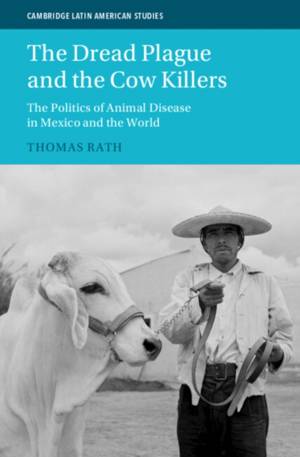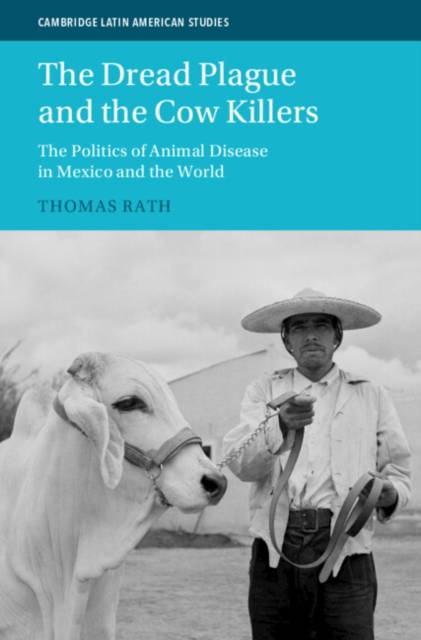
- Afhalen na 1 uur in een winkel met voorraad
- Gratis thuislevering in België vanaf € 30
- Ruim aanbod met 7 miljoen producten
- Afhalen na 1 uur in een winkel met voorraad
- Gratis thuislevering in België vanaf € 30
- Ruim aanbod met 7 miljoen producten
Zoeken
The Dread Plague and the Cow Killers
The Politics of Animal Disease in Mexico and the World
Thomas Rath
€ 57,95
+ 115 punten
Omschrijving
Between 1947 and 1954, the Mexican and US governments waged a massive campaign against a devastating livestock plague, aftosa or foot-and-mouth disease. Absorbing over half of US economic aid to Latin America and involving thousands of veterinarians and ranchers from both countries, battalions of Mexican troops, and scientists from Europe and the Americas, the campaign against aftosa was unprecedented in size. Despite daunting obstacles and entrenched opposition, it successfully eradicated the virus in Mexico, and reshaped policies, institutions, and knowledge around the world. Using untapped sources from local, national, and international archives, Thomas Rath provides a comprehensive history of this campaign, the forces that shaped it - from presidents to peasants, scientists to journalists, pistoleros to priests, mountains to mules - and the complicated legacy it left. More broadly, it uses the campaign to explore the formation of the Mexican state, changing ideas of development and security, and the history of human-animal relations.
Specificaties
Betrokkenen
- Auteur(s):
- Uitgeverij:
Inhoud
- Aantal bladzijden:
- 264
- Taal:
- Engels
- Reeks:
Eigenschappen
- Productcode (EAN):
- 9781108844482
- Verschijningsdatum:
- 24/11/2022
- Uitvoering:
- Hardcover
- Formaat:
- Genaaid
- Afmetingen:
- 155 mm x 229 mm
- Gewicht:
- 521 g

Alleen bij Standaard Boekhandel
+ 115 punten op je klantenkaart van Standaard Boekhandel
Beoordelingen
We publiceren alleen reviews die voldoen aan de voorwaarden voor reviews. Bekijk onze voorwaarden voor reviews.











